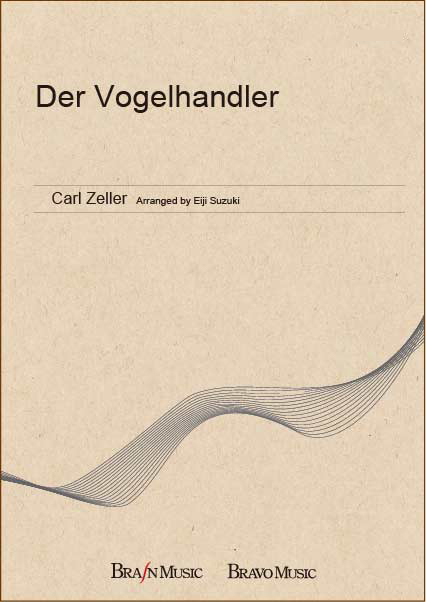Nous utilisons des cookies pour améliorer votre expérience utilisateur. Pour se conformer à la nouvelle directive concernant la vie privée, nous devons vous demander votre consentement pour définir des cookies. En savoir plus.
<< Retour à l'aperçu

Der Vogelhändler (The Bird Seller) [Full Instrumentation]

Partitions pour orchestre d’harmonie.
| Article no.: | BRZYDAZA01 |
|---|---|
| Compositeur: | Carl Zeller |
| Arrangeur: | Eiji Suzuki |
| Niveau: | 5 |
| Durée: | 10:00 |
| Editeur: | Brain Music |
| Format: | A4 21x29,7cm |
Disponible dans ces catégories
À partir de
180,00 €
TTC
Disponibilité :
En stockExpédié :
Sous 1 jour ouvrableSelections from the Operetta
The type of music heard in the park 100 years ago by a good community band, "The Bird Seller" today is Zeller's essential remaining work. Eiji Suzuki has further enhanced this collection with full percussion, including many mallet parts, piano and harp. The operetta's most beloved tunes occur at letters "J" and "M", wonderful melodies. This arrangement begins, and ends with marches, which Zeller was known for in his day, but are little played today. Suzuki arranged this work in three parts, which can stand alone. Collectively, the two "full stops" in the work are unusual, but typical of the time when collections were arranged as a potpourri without elaborate bridges between sections. Arranged in largely tutti form, there are not so many challenges for the woodwinds, but rather it is a well-blended piece that audiences should love.
The type of music heard in the park 100 years ago by a good community band, "The Bird Seller" today is Zeller's essential remaining work. Eiji Suzuki has further enhanced this collection with full percussion, including many mallet parts, piano and harp. The operetta's most beloved tunes occur at letters "J" and "M", wonderful melodies. This arrangement begins, and ends with marches, which Zeller was known for in his day, but are little played today. Suzuki arranged this work in three parts, which can stand alone. Collectively, the two "full stops" in the work are unusual, but typical of the time when collections were arranged as a potpourri without elaborate bridges between sections. Arranged in largely tutti form, there are not so many challenges for the woodwinds, but rather it is a well-blended piece that audiences should love.
Concert & Festival,Z-YDAZ-A01S,Z-YDAZ-A01A,ZOMS-A032S,ZOMS-A032A,BRZYDAZA01S,BRZYDAZA01A,BRZOMSA032
 Français
Français Nederlands
Nederlands  English
English  Deutsch
Deutsch 
